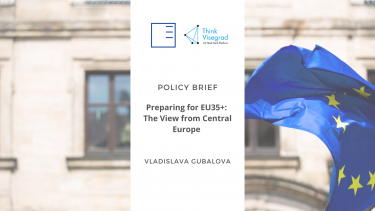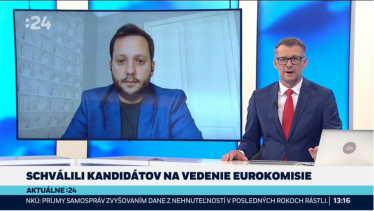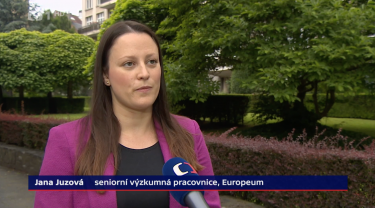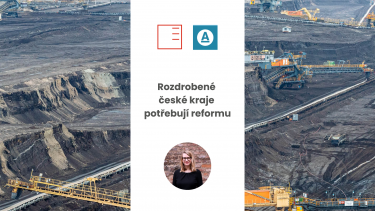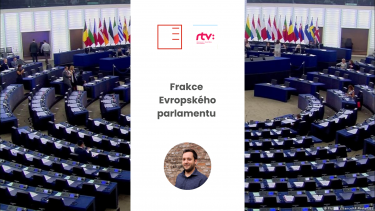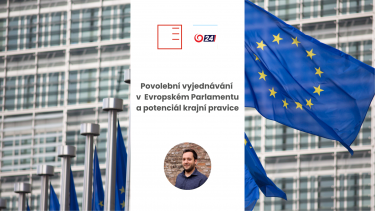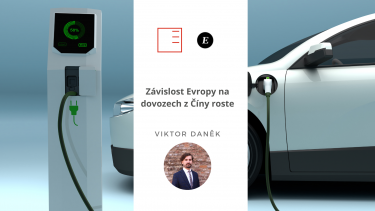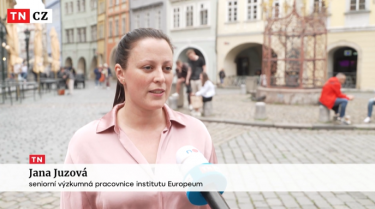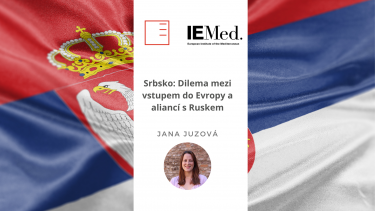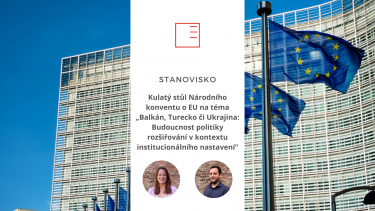Policy Brief | Preparing for EU35+: The View from Central Europe
Despite the historical support of EU enlargement policy by the Visegrad Four (V4), these Central European states are now faced with the challenge of reconciling their stances with the new realities of the process. As Ukraine and Moldova opened their accession negotiations, the EU seems to be torn on the questions associated with the future enlargement(s) - institutional reforms and changes within the EU budget. Transitioning from economic beneficiaries to potential contributors, the V4 states must evaluate the potential political and economic impacts of new members on both the EU and their domestic levels. Writes and proposes recommendations Vladislava Gubalova from GLOBSEC.
Show moreRTVS | EU and Ukraine have concluded a comprehensive security agreement in Brussels
The European Union and Ukraine concluded a comprehensive security agreement in Brussels. This builds upon the EU's longstanding support for Ukraine. What did the politicians agree upon? What is new in the new treaty? Žiga Faktor, Deputy Director and Head of the Brussels Office at the EUROPEUM Institute, commented for the Slovak RTVS.
Show more
Události ČT | Accession talks between Ukraine and Moldova and the EU
The European Union has initiated accession talks with Ukraine and Moldova. This decision was preceded by two years of negotiations. The accession process is expected to take several years. Jana Juzová, a senior researcher at the EUROPEUM Institute, commented on the topic for Evening News on Czech Television.
Show moreAktuálně.cz | Fragmented Czech Regions Need Reform
In the autumn, regional council elections will be held. The existence of 14 regions in the Czech Republic, however, does not have a long tradition – they were only established in 2000, partly due to the anticipated entry into the European Union. This arrangement is now heavily criticized for their fragmentation, low and duplicative administrative capacities, and the associated negative impacts on the state budget. Klára Votavová, a researcher at EUROPEUM Institute, presents in her commentary on research on the capacities of the state and regions to draw from the Just Transition Fund, using the examples of the Karlovy Vary and Moravian-Silesian regions.
Show moreRTVS | Political Groups in the European Parliament
The European People's Party (EPP) in the European elections may face competition from political groups such as the European Conservatives and Reformists (ECR) and the far-right Identity and Democracy (ID). After the elections, negotiations on the structure of the political groups and the future President of the European Commission will commence behind closed doors. Žiga Faktor, Deputy Director and Head of the Brussels Office of EUROPEUM Institute, comments for Slovak radio RTVS.
Show more
JOJ24 | Post-election negotiations within the European Parliament and the potential of the far right
The far right is often disunited, as it lacks electoral discipline and prioritizes its own interests of national politics over its political group. In an interview for the Slovak television JOJ24, Žiga Faktor, Deputy Director and Head of the Brussels Office of EUROPEUM Institute, describes the role European Conservatives and Reformists and the far right from the Identity and Democracy Group could play in coalition building.
Show more
Ekonomický deník | Europe's dependence on imports from China is growing
The essential components needed to grow the modern economy include chips and semiconductors, solar panels and batteries for electric cars. All of these are imported into Europe from Asian countries instead of manufacturing capacity being built here. Viktor Daňek, deputy director of EUROPEUM Institute, said it is necessary to open a debate on the reform of the common budget and new revenues.
Show moreTV Nova | Brussels will deal with the enlargement of the Union. Among the candidates are Turkey or Ukraine
The elections to the European Parliament are less than a week away, and one of the main topics that Brussels will have to deal with in the coming years is the enlargement of the European Union. A total of nine countries are waiting to join the EU, but according to experts, rapid expansion is unlikely. The President of the European Council, Charles Michel, talks about the possibility of enlargement until 2030, which requires reforms from both the candidate countries and the Union itself. Jana Juzová, researcher at EUROPEUM Institute, commented on the situation for TV Nova.
Show moreIEMED | Serbia: The Dilemma between European Accession and Alliance with Russia
With Ukraine’s defence against Russia heading toward a stalemate in the second half of the year and increased pressure inside the EU to deliver on its promises to provide the country with needed financial and military support, Serbia’s ambiguous relationship with Russia and the West has been brought increasingly into the spotlight in 2023. The Serbian Progressive Party (SNS), ruling since 2012, and President Aleksandar Vučić have been responsible for continued democratic backsliding and have failed to align with the Union’s foreign policy during Serbia’s lengthy EU accession process, pushing the situation closer towards a tipping point in Serbia-EU relations. Senior researcher at EUROPEUM Institute, Jana Juzová, describes this in more detail in her article for the European Institute of the Mediterranean.
Show morePosition | National Convention Round Table on the EU
How to improve the EU enlargement process? How to ensure that the democratising effect of the accession process is sustained beyond the eventual accession to the EU? And are EU institutional reforms a necessary condition for EU enlargement? Answers to these and other questions are offered by the EUROPEUM Institute for European Policy's contribution to the National Convention on the EU's roundtable on Balkans, Turkey or Ukraine: the future of enlargement policy in the context of institutional settings.
Show more
Staroměstské náměstí 4/1
Prague 1 - Staré Město
110 00
tel.: +420 212 246 552
email: europeum@europeum.org
https://www.europeum.org
